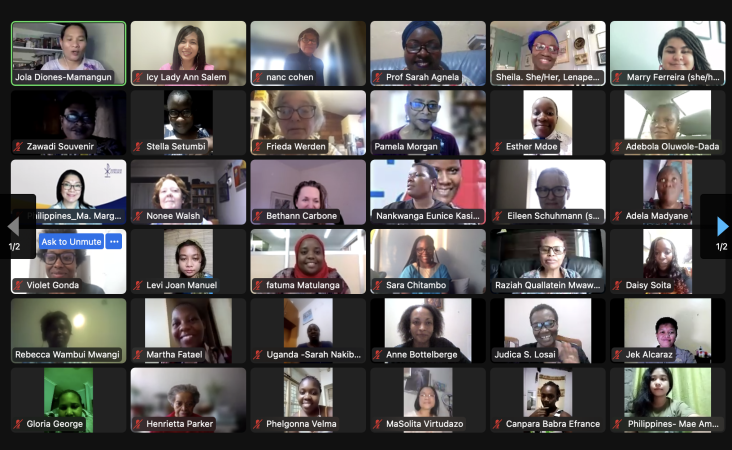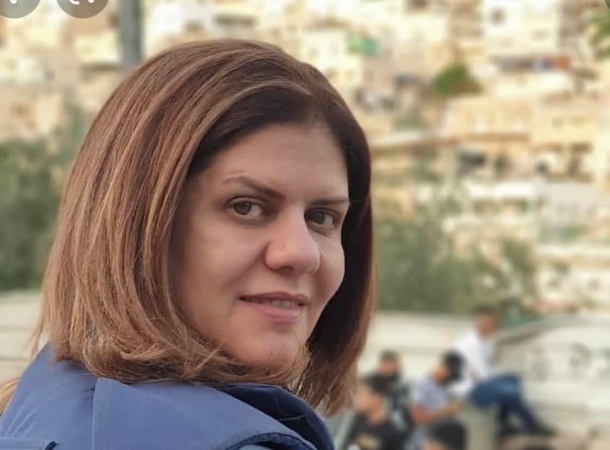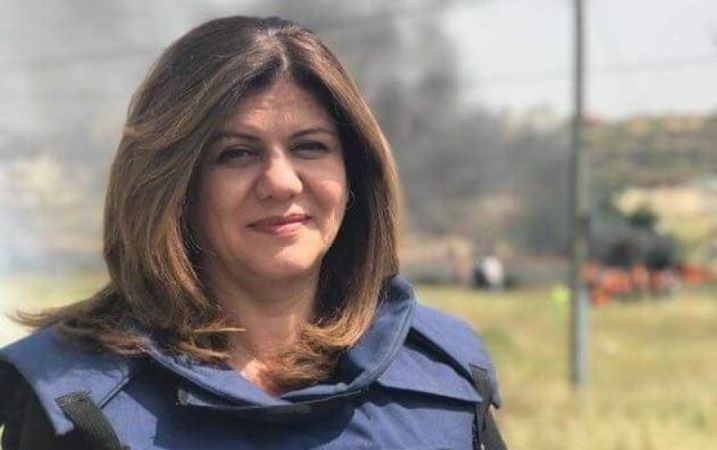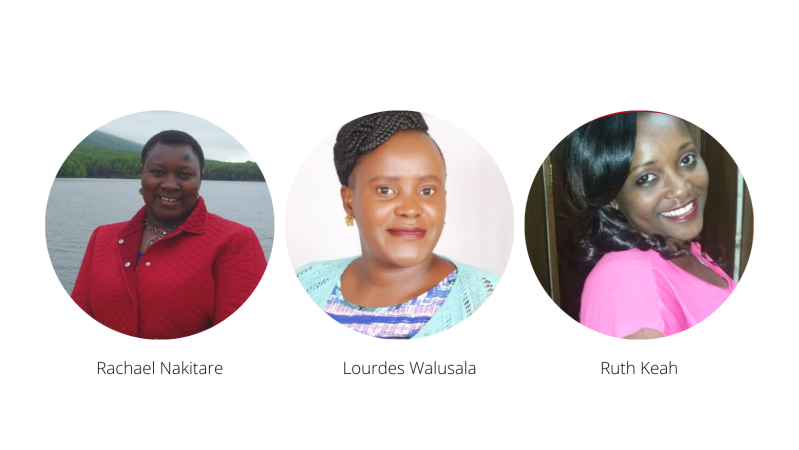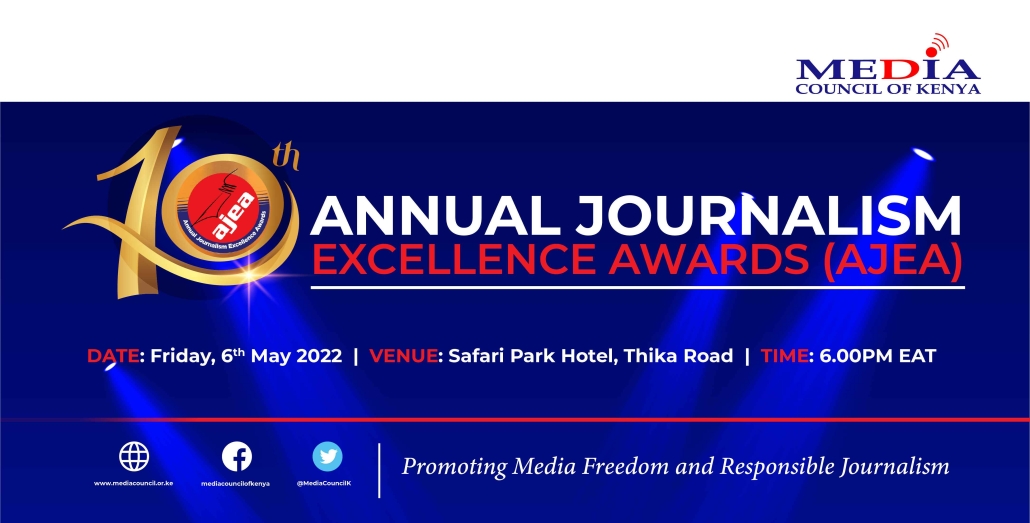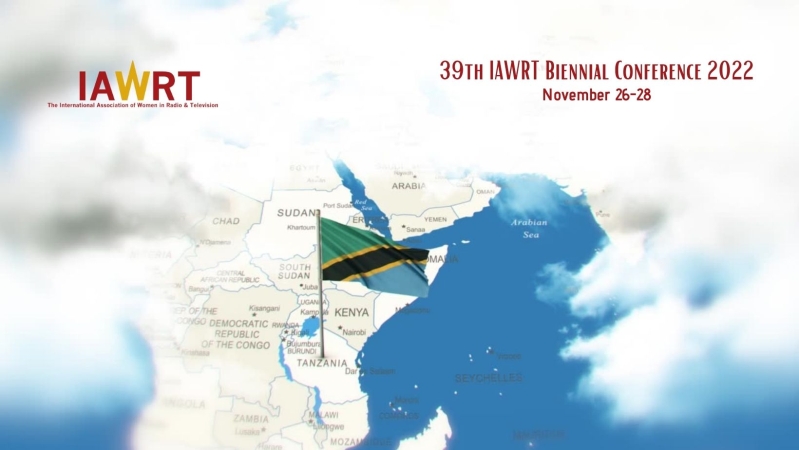Marry Ferreira | IAWRT-USA UN Youth Representative
When investigating the impact of climate change one most often reads articles written either by scientists, journalists, or scholars. The voices of those who actually experience the devastating effects of this phenomenon, especially women and girls, are most often unheard. We need to rethink the way we communicate climate change and one of the best tools to do so is storytelling. Stories have the power to address complex subject matters and communicate them in a personal way with tangible solutions. It’s addressing injustices through the voices of those most affected by them. That is what a group of journalists, researchers and media professionals are working to address.
On March 18, 2022, as a parallel event of the NGO CSW66 Fórum, “My Climate Change Story: Cellphone Cinema Workshop” prepared women globally with an intergenerational lens to go into their communities, and use their cell phones to create a 3 a 7-minute vignette about their own stories. The event happened in the context of the NGO CSW Forum, that runs parallel to the official UN Commission on the Status of Women (CSW) taking place at the UN Headquarters. Over the two weeks of in-person and online events, this year’s priority theme was “achieving gender equality and the empowerment of all women and girls in the context of climate change, environmental and disaster risk reduction policies and programmes”.
With over 300 registrants from Kenia, the Philippines, Nepal, Uganda, France, the United States, Brazil, Jamaica, and many other countries, the “My Climate Change Story: Cellphone Cinema Workshop” had a 120-minute session hosted by The International Association of Women in Radio and Television, Wings Radio, and Woman in Media – Newark. Women and girls were in the center of the conversation because their vulnerability to climate change stems from a number of factors — social, economic, and cultural. According to the United Nations, 70% of the 1.3 billion people living in conditions of poverty are women. In urban areas, 40 per cent of the poorest households are headed by women. Women predominate in the world’s food production (50-80%), but they own less than 10% of the land.
“Cellphone technologies are one of the most accessible to populations at all levels of society, and we are taking these technologies to amplify our solutions. We are not calling to the ‘so-called table’, we are creating a new one. Because women around the world have a lot to say”, said Sheila Katzman, President of IAWRT-USA, at the beginning of the event. Trainers of the “My Climate Change Story: Cellphone Cinema Workshop” included Nupur Basu, a senior journalist, documentary filmmaker, and media educator from India; Elizabeth Miller, a Professor in Communication Studies at Concordia University and a documentary maker with expertise in environmental media; Samina Mishra, a documentary filmmaker, writer, and teacher based in New Delhi; Jek Alcaraz, a Filipino journalist, videographer and video editor of Kodao Productions; Jola Diones- Mamangun, journalist, filmmaker, Executive Director of Kodao Productions, and former Chapter Head of IAWRT Philippines; Raziah Quallatein Mwawanga, Television Producer and Director, Tanzania; Lady Ann Salem, journalist and documentary filmmaker, Philippines; Sara Chitambo, filmmaker, South Africa; Coordinators include, Marry Ferreira, communications and advocacy specialist from Brazil; Sheila Katzman, President of IAWRT-USA – The International Association of Women in Radio and Television; and Pamela Morgan, Executive Committee of NGOCSW/NY and the founder and Executive Director of Woman in Media-Newark.
As important as it is to communicate about the impacts of climate change, it is also fundamental to include stories that people can relate to because the climate crisis is not a distant threat. This workshop taught women how to create a thesis statement, a storyboard, and how to use their cameras to capture their stories and their community’s stories about what they are facing today. Participants also received an overview of how to edit their mobile videos and how to upload them to the IAWRT YouTube channel.
“I think this is one of the most compelling events out of the 700 parallels events of the NGO CSW66 Forum because we are inviting and empowering women to tell their own climate crisis stories. Additionally, with the skills they are learning here, they will be able to take to the future and tell others of their stories. It’s the ordinary people who are most impacted by the climate crisis, and today we are centering their experience”, added Pamela Morgan, event co-organizer. Once all videos are finished, the participants are invited to submit their creations to My Climate Change Story, a channel on IAWRT YouTube that will be populated by original film shorts created by women globally to illustrate how climate change has affected their lives and those of their families hopes to change that narrative. My Climate Change Story YouTube Channel is a laboratory for innovation and solutions that can be shared and emulated globally. Identification of these common themes may lead to the development of projects and practical outcomes that aim to improve the lives of women and girls and enhance community resilience – when women do well, communities are stronger.


